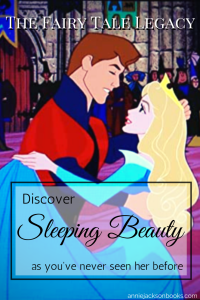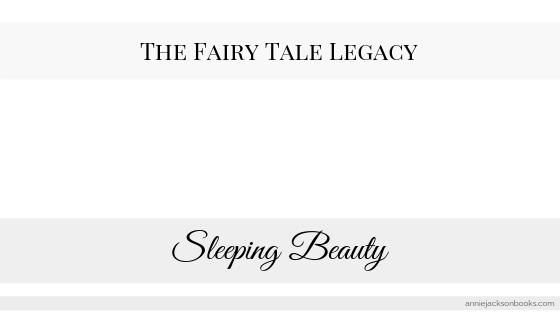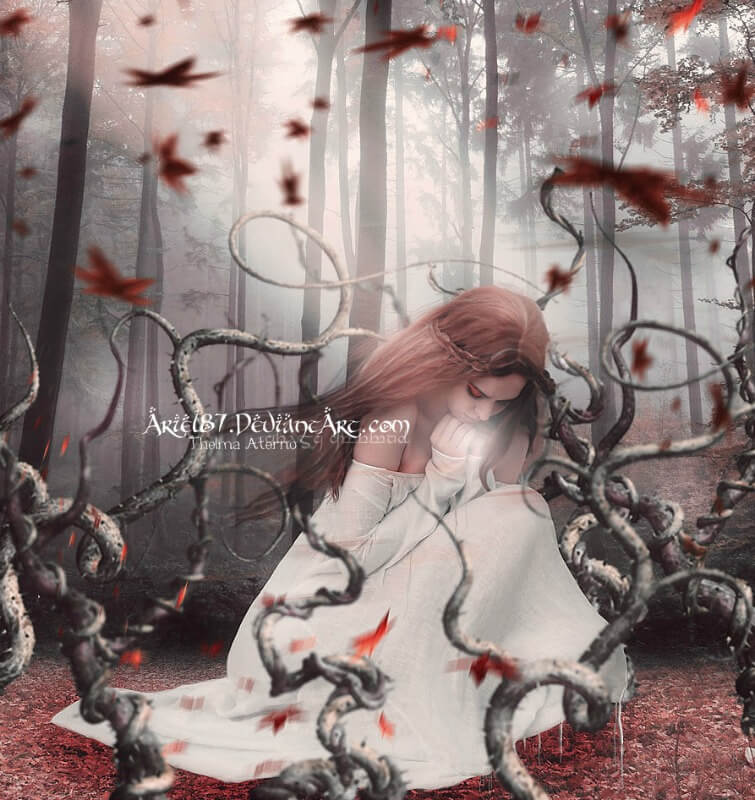We have this false idea that fairy tales are about weak and passive heroines, damsels in distress. So we are always fighting against a fairy tale legacy that doesn’t exist.
Sleeping Beauty has always been one of my favorites. Which is difficult because she is the most passive of the fairy tale heroines. The course of her life is set by that curse. No matter the retelling you choose, there is no escaping it. Whether she grows up in the palace or the woods, despite destroying all the spindles in the kingdom, whether she chose to rebel against the fairies and insist on a life with Phillip or not – she’s bound to this destiny.
I like the way Robin McKinley puts it in Rose Daughter (which, yes, is a Beauty and the Beast retelling).
But it was equally clear to her that this was her fate, that she had called its name and it had come to her, and she could do nothing now but own it.
Sleeping Beauty is a tale about owning one’s fate.
The Charles Perrault “original” version of Sleeping Beauty essentially lacks any agency from any of the characters. She grows up in the palace and one day when her parents are out she’s running around playing when she happens upon the fateful spindle. When she pricks her finger and falls asleep her father essentially says, “eh, it was bound to happen” and he and the queen jaunt off to live in another castle while she sleeps for 100 years. There’s no kiss. The prince doesn’t actually save her from anything because there is nothing to be saved from. She’s already asleep and there’s no dragon or sense of peril. It’s been 100 years. She is not a damsel in distress, she is a girl with a destiny. And he is little more than the right guy at the right time who walks right up to the castle because “a young and amorous prince is always valiant.” Though it’s rather hollow valiance without anything to fight or any sort of struggle. And when he enters the room she wakes up and says, “Is it you, my Prince? You have waited a long while.” Essentially, “What took you so long?”
It’s all almost laughably passive until the ogre shows up (yes, there’s an ogre). Disney took an already passive heroine and shaped her into a specific cultural idea. There’s no getting around that Aurora doesn’t do much but grow up sweet and kind and good-natured and then she spends a good bit of the story asleep. He comes for her. He gets to storm the castle and fight the dragon and out of all the fairy tales Phillip gets the most to do. But let’s not forget that really it’s the fairies more than the prince, that saved the day. And Maleficent sets the course of the entire story. Women in general are very influential and powerful in the Disney film, even if Aurora herself is less so.
If Sleeping Beauty presents the least developed heroine however, she also presents the greatest opportunity. Because we get to define her. Disney, in 1959 when the film came out, turned her into something easily perceived as compliant. But this isn’t the 1950s anymore. And we get to bring to the story the context of our culture and who we are.
And that’s the great thing about fairy tales; the reason they are so enduring and retold again and again and again. We get to decide how we tell the story – whether she grows up in the palace with the privilege and responsibilities of being a princess. Or if she grows up without any idea of her true identity and the destiny lurking about. Who does she become then?
Does she fall in the love with the prince before the heart of the story unfolds? Or are they bound together as inescapably as the curse that is upon her?
Does she willingly sacrifice the only life she’s known for this greater destiny and the weight of royalty upon her?
I grew up loving Disney’s Sleeping Beauty because I didn’t bring to it the societal constraints of generations before. I liked that in a life bound by this destiny she chooses Phillip. She chooses love and to live the life she wants. And then that choice is taken from her. She is the princess and has responsibilities and obligations. So, she sacrifices her choice and the life she wants.
Sacrifice, I think, is part of what makes this story powerful – the strength and courage required to willingly not get what you want. And what are the choices you make when you’re caught inescapably in destiny? That’s my Sleeping Beauty.
But it’s not the only one. There are so many possibilities laden in this story; magic and identity and the power to throw a kingdom into disarray because of the fate of this girl; the choices she makes in the wake of the curse and the people that are drawn into that destiny with her.
However you tell it, this is a story entirely about this girl which gives her some measure of latent power. And from there, she is only as weak as we chose to make her.

THE FAIRY TALE LEGACIES
Sleeping Beauty | Cinderella | Beauty and the Beast | The Little Mermaid | Snow White and Rose Red | Rapunzel | Jasmine | Twelve Dancing Princesses | Snow White | The Snow Queen | Overview
Want to refresh your memory of the fairy tale? SurLaLune fairy tales has an annotated Charles Perrault version. And Angie has a great comparison of the fairy tale and Disney movie as part of her Project Disney.


After reading your take on the passive nature of Sleeping Beauty (which I hadn’t really thought of before!) I thought your argument for her ‘latent power’ as you put it was so exceptionally done! Sleeping Beauty has never been a favorite fairy tale of mine, but your post makes a great argument for this fairy tale.
thank you! I must have written this post at least 4 times trying to sort it all out 🙂 So, it’s great to hear that I effectively countered her passivity (even as I revealed it!) 🙂 I don’t know that I would have loved the fairy tale as much without the Disney movie, but there was something about that I really loved.